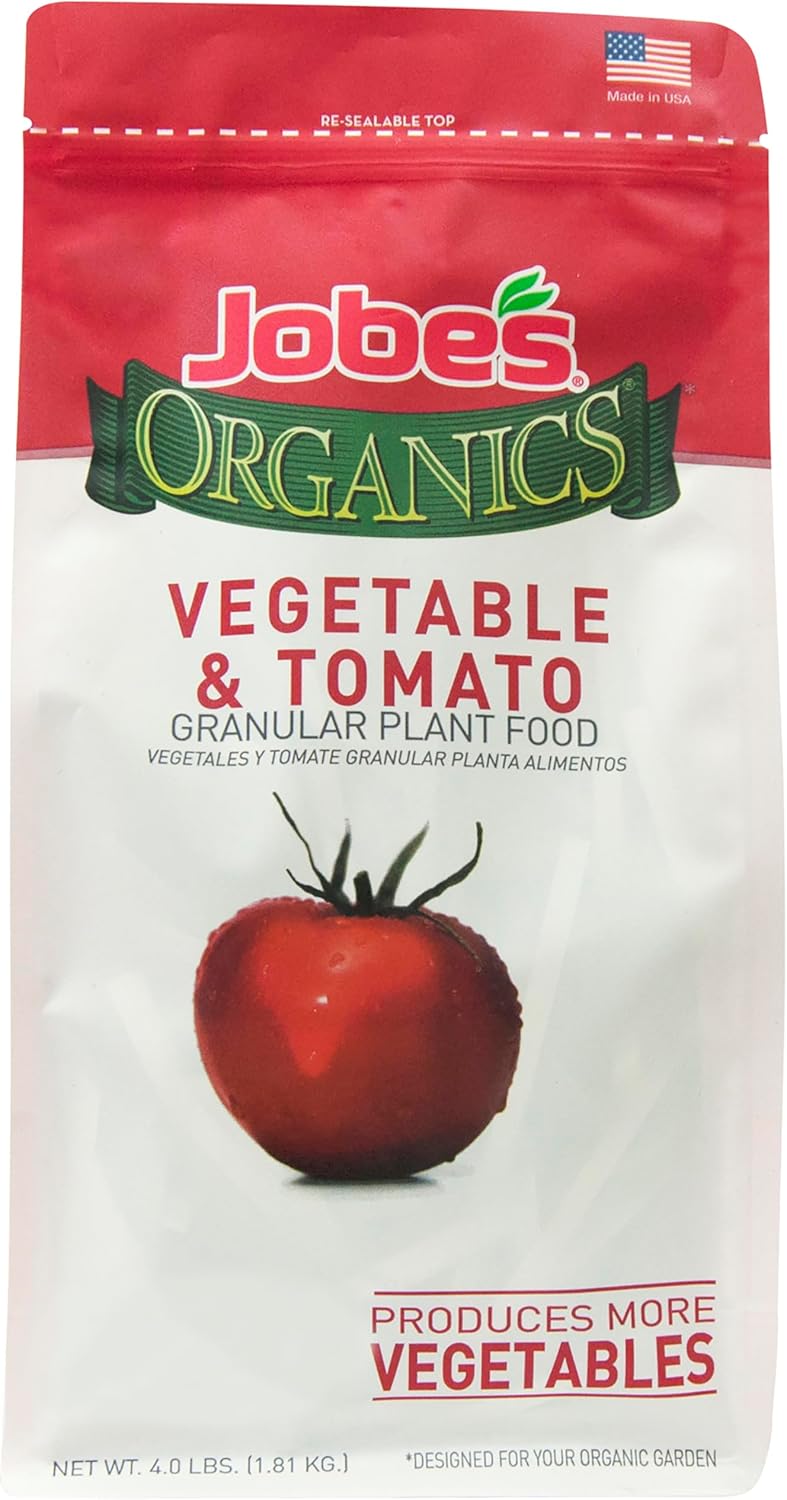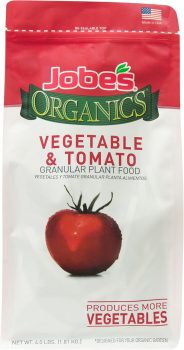
When it comes to nurturing flourishing vegetable gardens, the right fertilizer is crucial. Jobe’s Organics Granular Garden Fertilizer promises to deliver organic nourishment tailored for vegetables and tomatoes. In this article, we’ll explore its features, benefits, and real user experiences, helping you make an informed decision for your garden’s health and productivity.
Product Features
| Feature | Description |
|---|---|
| Organic Composition | 2-5-3 NPK formulation providing essential nutrients. |
| Weight | 4 lbs bag, easy to measure and apply. |
| OMRI Listed | Certified organic for safe use in food production. |
| Application Frequency | Every 4-6 weeks during the growing season. |
| Usage Safety | Safe around children and pets. |
Product Overview
| Pros |
|---|
| Certified organic, free from synthetic chemicals. |
| Enhances plant growth with quick results. |
| Improves soil moisture retention. |
| Convenient resealable packaging. |
| Cons |
|---|
| Notable odor post-application. |
| Lack of detailed microbial composition information. |
| Not for indoor plants. |
Understanding Organic Gardening with Jobe’s Fertilizer
When using Jobe’s Organics Granular Garden Fertilizer, achieving optimal garden health and productivity involves a few practical strategies that can significantly enhance your experience. First, I recommend applying it at the start of the planting season. Sprinkle the granular fertilizer evenly over the soil, mixing it into the top layer to ensure that the nutrients are readily available for your plants’ roots. It’s important to follow the suggested application rates on the packaging; if using it for vegetables, about one cup per 10 square feet works well.
Frequency matters too. I typically apply the fertilizer every 4-6 weeks during the growing season. This consistent feeding will support vigorous plant growth and increase yield potential. During heavy rains, I take extra care by checking if more nutrients are needed, as water can leach away some vital elements.
I’ve noticed that user reviews frequently highlight success stories of robust vegetable gardens flourishing with organic practices. Many gardeners appreciate the long-lasting effects of Jobe’s, as it releases nutrients slowly over time. However, some have expressed concerns about over-fertilizing, which can lead to leaf burn or stunted growth. Therefore, watching for signs of nutrient excess or deficiency is crucial.
By implementing these methods and observing the garden’s response, we can navigate our organic gardening journey effectively, reaping the rewards of our efforts.
Maximizing Your Garden’s Potential
When it comes to using Jobe’s Organics Granular Garden Fertilizer, timing and technique are key to unlocking your garden’s full potential. My recommendations start with application methods. For optimal plant growth, I suggest spreading the granular fertilizer evenly around the base of your plants. This allows the nutrients to be absorbed effectively by the roots. Make sure to water thoroughly after application, as this aids in dissolving the granules and activating the beneficial microorganisms present.
As for frequency, I typically apply Jobe’s Granular Fertilizer every 4-6 weeks during the growing season. However, it’s essential to monitor your plants; if they exhibit signs of yellowing or stunted growth, it may be time for a little extra boost. Also, keep in mind that the application rates vary depending on the type of plants you’re nurturing—vegetables may require different amounts than flowering plants.
Based on user reviews, many gardeners have shared success stories, showcasing lush, healthy plants and bountiful harvests. One common concern is over-fertilization; I always recommend erring on the side of caution to avoid nutrient burn. Remember, it’s about nurturing, not forcing growth, so observe your garden’s responses closely. By following these practical tips, you can confidently utilize Jobe’s Organics Granular Fertilizer and ensure a thriving garden.
Conclusions
Jobe’s Organics Granular Garden Fertilizer stands out as a reliable option for organic gardening enthusiasts. Its eco-friendly composition and effective nutrient delivery promise healthier plants and bountiful yields. Weighing the pros and cons discussed, it’s clear that this fertilizer can be a valuable addition to your gardening toolkit, ensuring your vegetable garden thrives season after season.








